
Not all education takes place in an academic building — particularly at College of the Holy Cross, where outside-the-classroom learning opportunities range from local to global. Whether you're contributing to community engagement or diving into summer research or spending a semester in New York City, there are numerous intellectually inspiring programs to amplify the impact of a Holy Cross education.
Head to New York or Washington
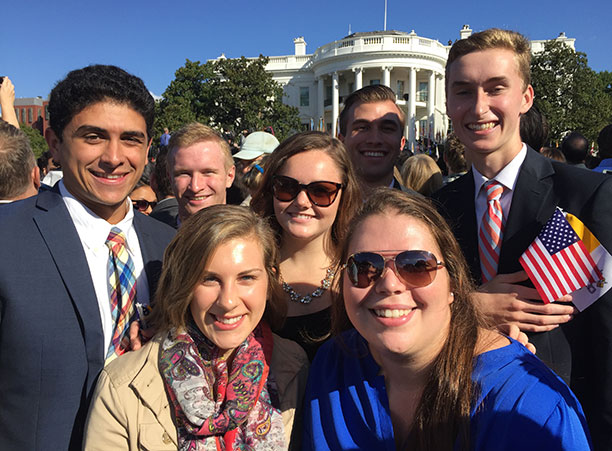 Students stand in front of the White House. Photo by Caroline Shannon '17
Students stand in front of the White House. Photo by Caroline Shannon '17Jullia Pham '20, a psychology major, spent a semester in New York City, where she interned at Hearst Magazines.
"The workplace was my classroom. I can honestly say that participating in the New York Semester Program was one of the best decisions I made at Holy Cross. In addition to understanding what I wanted to do in the future, I was able to meet with members of the New York City alumni network through the colloquia program. The network is so eager to help our Holy Cross community and it was great to feel at home away from campus with their support."
Go deep on summer research
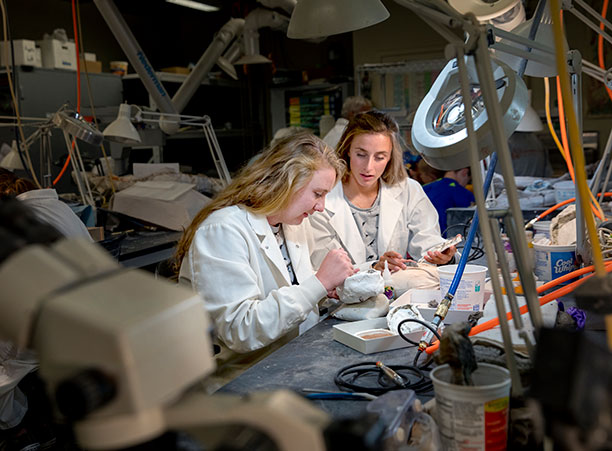 Two students examine dinosaur bones as part of a summer research project. Photo by Kim Raff
Two students examine dinosaur bones as part of a summer research project. Photo by Kim RaffKerry Shortell '20, a sociology and psychology double major with a concentration in gender, sexuality and women's studies, spent this past summer researching the history of domestic violence against women.
"Performing summer research has been an incredibly empowering experience. Since day one at Holy Cross, our professors have taught us to ask and answer difficult questions. By affording us the opportunity to completely immerse ourselves in topics that ignite our academic spirit, they're essentially saying, 'We've equipped you with the tools you need, we believe in you, and we're here to help you pursue your passion and assert your intellectual independence.' The impact has been broad: not only was it a culmination of my entire Holy Cross liberal arts education up to that point, but it also provided me with professional and research skills that will aid me in whichever field I enter after graduation."
Start your own project
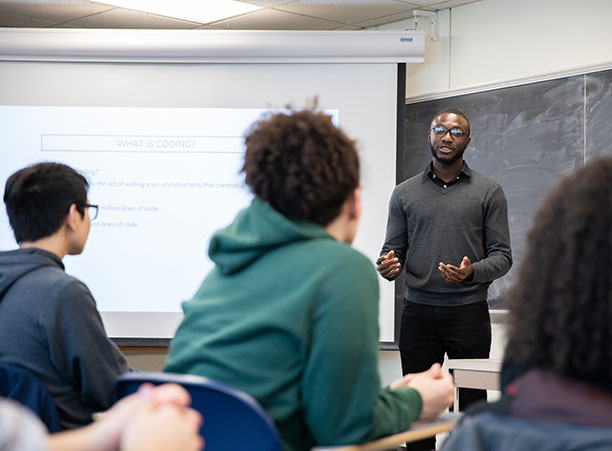 Tolu Akinosho '20 stands in front of Py Coding Academy students. Photo by Avanell Brock
Tolu Akinosho '20 stands in front of Py Coding Academy students. Photo by Avanell BrockTolu Akinosho '20, a computer science and physics double major, used money from the Ignite Fund to help with his startup company Py Coding Academy, which teaches students in Worcester high schools how to code.
"The Ignite Fund has transformed my education by providing a rare platform that encouraged and supported me in designing an independent project and in developing the idea into reality. This opportunity has really helped me learn more than I would have from just the traditional, lecture-based style of education."
Score an academic internship
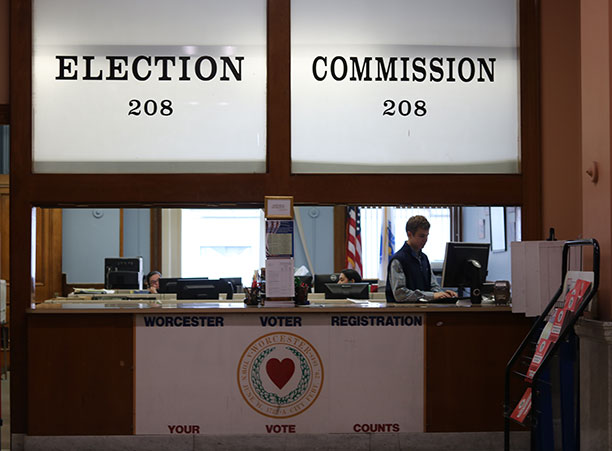 Bobby Tuzzio '20 stands at the counter for the Worcester Election Commission, where he interned as part of the Academic Internship Program. Photo by Rebecca Blackwell '16
Bobby Tuzzio '20 stands at the counter for the Worcester Election Commission, where he interned as part of the Academic Internship Program. Photo by Rebecca Blackwell '16Dane Anderson '20, a computer science major with a minor in religious studies, explored his interest in computer networks through an academic internship in Holy Cross' IT department.
"I want to consider a job in computer networks as a career path, but it was daunting to think that I would graduate without any experience on the matter. The Academic Internship Program allowed me to work with two mentors who are well versed in computer networks, and they took the time to ensure that I received a relevant education about their field. I now have the tools to confidently apply to computer networks jobs as I enter my senior year."
Engage with the community
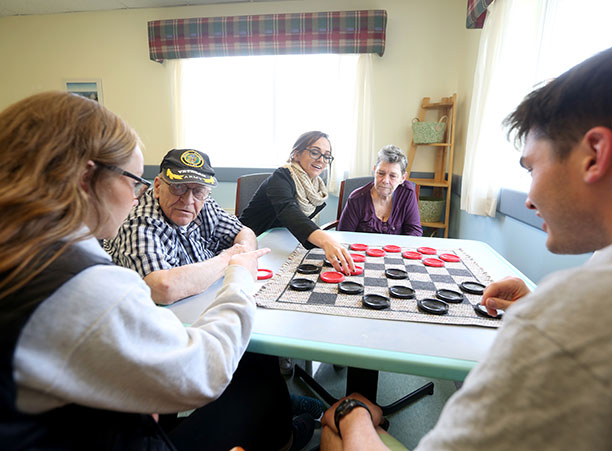 Holy Cross students play checkers with patients at St. Mary Health Care in Worcester. Photo by Tom Rettig
Holy Cross students play checkers with patients at St. Mary Health Care in Worcester. Photo by Tom RettigEmma Davison '21, a political science and Middle Eastern studies double major, became involved with community-based learning through her first-year Montserrat course. Through the class, Davison became a teacher's assistant for a kindergarten class in Worcester and helped create a documentary on an LGBTQ+ asylum task force at a local church.
"I'm most drawn to my areas of study for their human components. I take great interest in formal lectures and paper writing, but have found I learn most deeply when I can pair lessons with lived experience. My most intellectually stimulating courses have been those that demand just as much from my interpersonal skills as they do of my more traditional studies."

